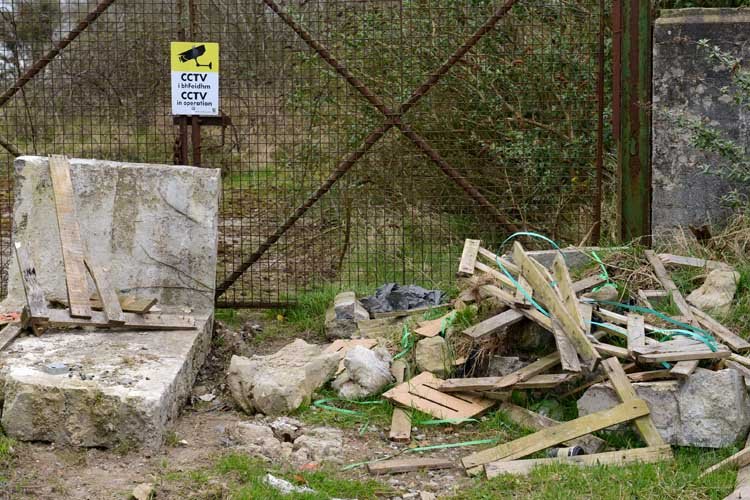Although they have access to CCTV, which is seen as the perfect weapon to identify illegal dumpers, Local authorities are not allowed use it because it is regarded by the Data Protection Office as a breach of personal data legislation.
Meanwhile local authorities around the country have reported a large increase in illegal dumping in recent months which has brought with it an increase in rat infestation.
This increase in illegal dumping is being put down to the fact that people are stuck at home and are taking the opportunity to tidy out the garden or the house and, unwilling to pay for a skip, just dump their rubbish in a ditch, on the side of the road or on open ground.
Perhaps their thinking is that because there are fewer people about they are less likely to be spotted spreading their filth around. They also know that the ludicrous situation regarding CCTV means they can’t be touched.
Tidying up after these uncaring uncivilised people is costing a fortune – €1m a year in both Drogheda and Dundalk and a further €1m for the rest of county Louth. Replicate this in all 31 local authorities and we are wasting on average €90 million per year on clean ups.
It is left to Council workers to clear up their mess but only seldom can they identify the perpetrators of this unsociable crime from the rubbish.
So what about the rights of the vast majority of people who dispose of their rubbish legally?
Last week Labour Senator Mark Wall brought a Bill to the Seanad which would tip the balance back in favour of local authorities in this battle by allowing the use of CCTV in prosecution of offences relating to illegal dumping.
Launching the Bill, Senator Wall highlighted the need for a common sense approach on this issue. “The simple fact is that illegal dumping is out of control” he said.
“The problem is not confined to our remote beautiful countryside, although the problem there is at its worst. This problem can be found on the main streets of our cities, the main roads through our towns, as well as every secondary road and laneway in our country.
“This Bill would allow the use of CCTV by our local authorities to facilitate the prevention, investigation, detection and prosecution of an offence of illegal dumping. There can be no doubt that CCTV can be and is one of the most effective tools in the fight against the blight of illegal dumping.
“What we need are detections and prosecutions of those who simply feel they are above the law. This Bill is the first, and the most important step, in the fight back. The use of cameras at these locations will prevent dumping if this Bill passes – it is as simple as that.”

Local Labour TD Ged Nash has called on the government parties to support Senator Wall’s campaign to change the law so CCTV can be used by local authorities to tackle illegal dumping.
“… Video evidence is by far the most effective tool for prosecuting illegal dumping, and funding has previously been given to councils to enhance CCTV and drone monitoring of illegal dumping sites” Deputy Nash said.
“There are many community groups who continue to volunteer to protect their local area by cleaning up illegally dumped waste. Illegal dumping can potentially cause severe problems for those in rural areas, including preventing flood waters from draining effectively, and local authorities must be empowered to address this.
He said that Senator Wall’s bill would address the concerns around data protection and GPDR. “Councils have to be authorised by law to allow the processing of personal data such as the gathering and using of images of identifiable individuals by CCTV to use as evidence in the prosecution of dumping cases”.
“The Minister needs to take a common sense approach to this problem, and a balance between privacy and the common good must be struck. Illegal dumping is a serious issue and a blight on our countryside and we are calling on the government parties to back the Labour bill and ensure it passes into law as quickly as possible.”




